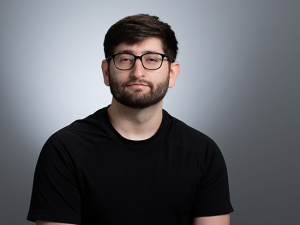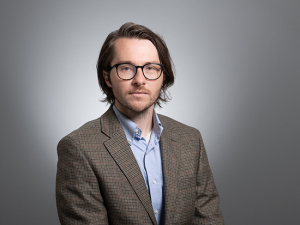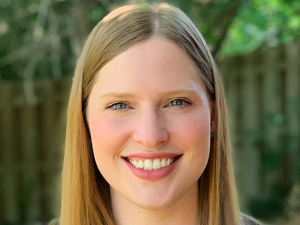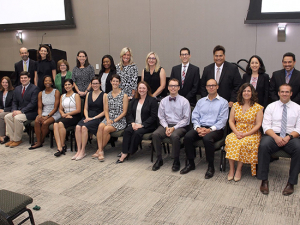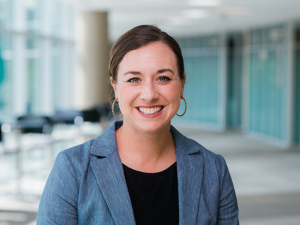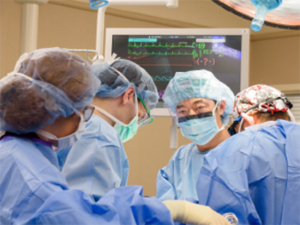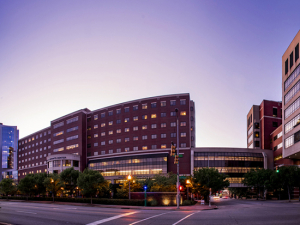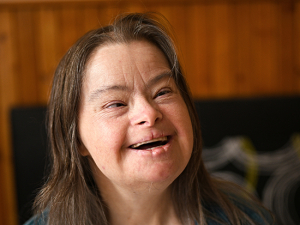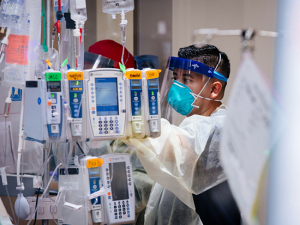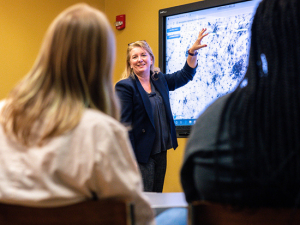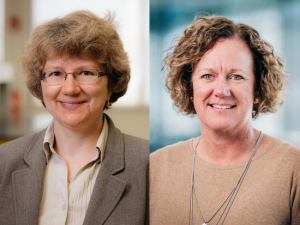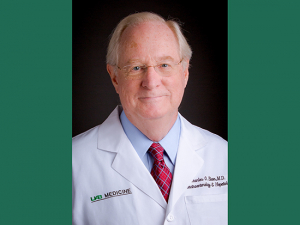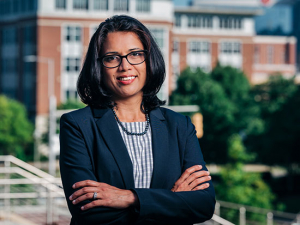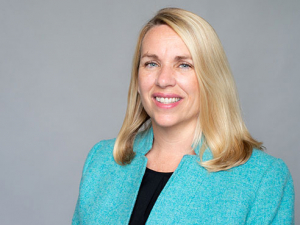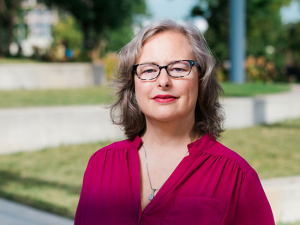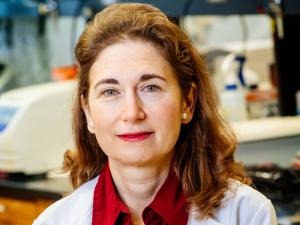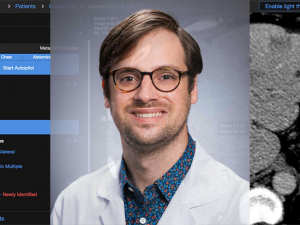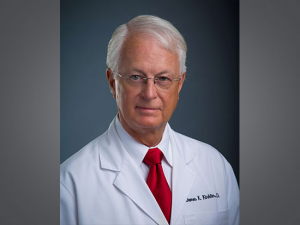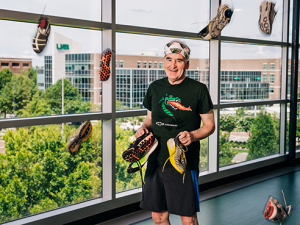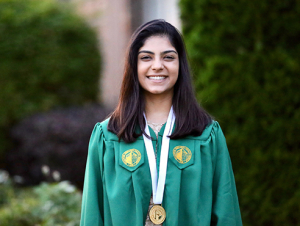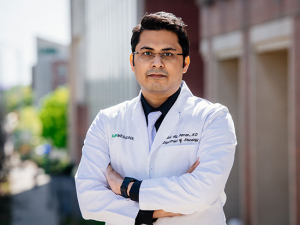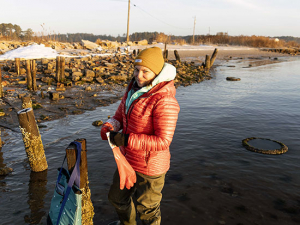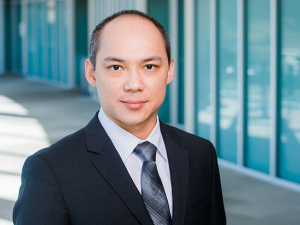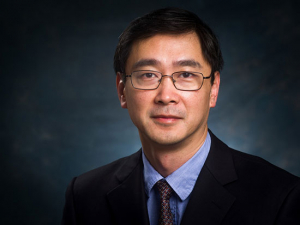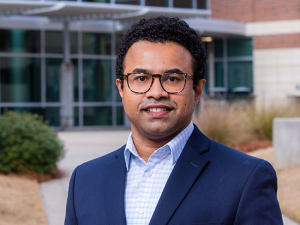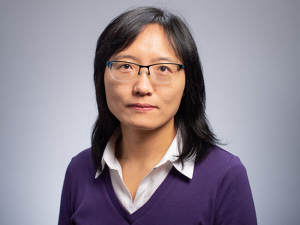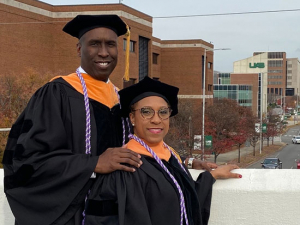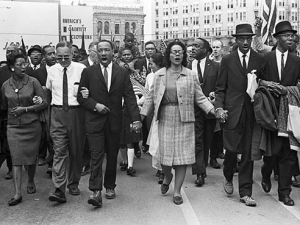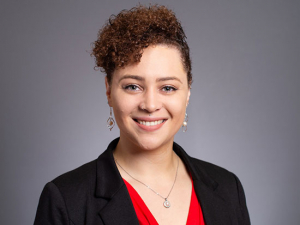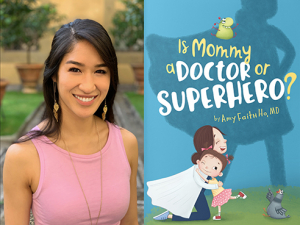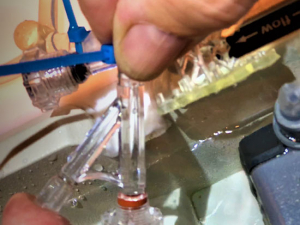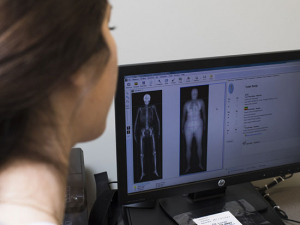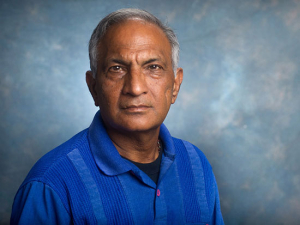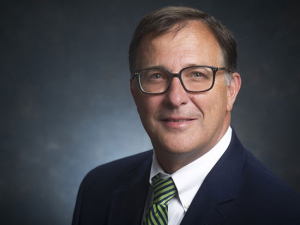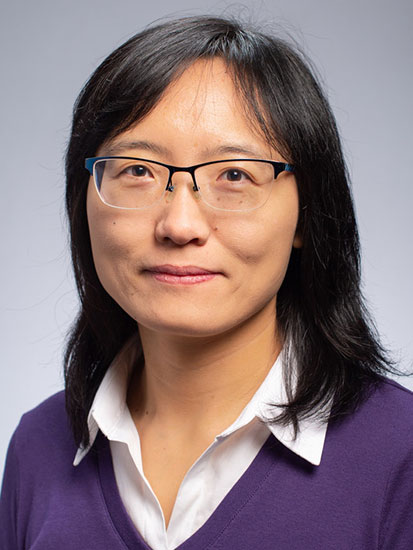 With her NSF CAREER award, Assistant Professor Wenli Bi, Ph.D., will study novel materials that could lead to new green technologies. The award will open more opportunities for women and underrepresented minorities in cutting-edge physics, as well.Magnets operating at microscopic scale under massive pressures could point the way to more-efficient media storage devices and other green technologies and form core components of future quantum computers. Wenli Bi, Ph.D., assistant professor in the Department of Physics, who has been a part of this growing field since she was a doctoral student, intends to bring women and underrepresented minorities along for the adventure.
With her NSF CAREER award, Assistant Professor Wenli Bi, Ph.D., will study novel materials that could lead to new green technologies. The award will open more opportunities for women and underrepresented minorities in cutting-edge physics, as well.Magnets operating at microscopic scale under massive pressures could point the way to more-efficient media storage devices and other green technologies and form core components of future quantum computers. Wenli Bi, Ph.D., assistant professor in the Department of Physics, who has been a part of this growing field since she was a doctoral student, intends to bring women and underrepresented minorities along for the adventure.
Bi is the recipient of a 2021 Faculty Early Career Development Program (CAREER) award from the National Science Foundation, which supports early-career faculty with the potential to be academic role models in both research and education within the context of the mission of their organizations.
The five-year, $596,715 award will accelerate her existing research in tuning quantum states of magnetic topological systems with pressure. Bi began that work at the Argonne National Laboratory in Illinois, where she was a postdoctoral research associate and then a staff scientist in the lab's Advanced Photon Source. The Advanced Photon Source is a national synchrotron-radiation facility that generates extremely powerful X-rays used for fundamental research and applications. "After I joined UAB [in 2019], my group started working right away on several quantum magnet systems, which paved the way for this project," she said.
Bi's CAREER award funding also will focus on bridging a gap in STEM workforce education in Alabama by directly training next-generation scientists, with a particular emphasis on women and underrepresented minorities. In addition, the award will contribute to high school science teaching training statewide through the NSF’s STEM Teaching and Learning Incubator program. And the award will fund a lecture series on modern synchrotron techniques and applications to introduce the latest developments in the field and future opportunities to the local research community and promote collaborations with national facilities.
We asked Bi to explain her project and its impact on science and students.
What was your reaction to being selected for this award?
“It was hard to believe — I felt extremely lucky when I was informed that my proposal was recommended for the award, and I am truly grateful for my supportive colleagues at UAB and my collaborators at other institutions.”
Free training offered for faculty preparing an NSF CAREER awardJunior faculty from across campus planning to apply for an award can learn from awardees Ragib Hasan, Ph.D., and Amber Genau, Ph.D., along with other current and previous awardees. Two sessions will be held online April 23 and 30. The second sessions builds off the first, so attendance at both sessions is recommended. RSVP by April 16 to Veronica Speight at vspeight@uab.edu. |
What makes this research unique in the field?
“Research in intrinsic topological magnets is a fairly new topic with very few materials synthesized so far due to lack of design principles and understanding of the complex phases that they exhibit. My research uses external pressure as a tuning knob to discover novel quantum phenomena in representative candidate materials. The fundamental understanding developed in this work will help to harness materials for future applications.
“The research project funded by this CAREER award will be conducted at UAB and the Advanced Photon Source at Argonne National Laboratory. We will use a suite of cutting-edge experimental techniques, including state-of-the-art synchrotron-based techniques and in-house techniques.”
What will this award mean for students, particularly women and underrepresented minorities?
“The project will involve women and underrepresented students (graduate students, undergraduate physics majors and even high school students) by engaging them in dynamical research. Students will be offered direct training opportunities so they can gain skills in cutting-edge technologies at multi-scale facilities, such as the Advanced Photon Source. I believe this will greatly benefit their future careers and advance their professional development pathways.”
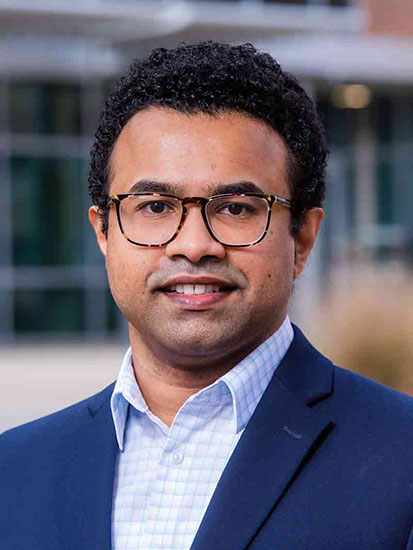 Related story
Related story